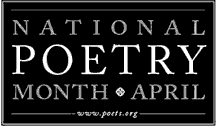
Observation—Waking up Our Senses
Many works of poets, writers or artists jog my imagination and astound my senses. How do they create such exotic, beautiful and incredible works that communicate fresh viewpoints while exploring universal questions? Their art compels me to think and perceive in new ways.
The moment that our senses awake is a moment that we lose ourselves through observing the details of the world around us. Images, sounds, fragrances and scenes evoke emotions and thoughts that fill us with empathy and erase bit by bit the borders that isolate us. These borders are the senseless packages of habits, self-image and pride that tie us, label us, and contain us, defining our life.
Sometimes it takes a severe crisis or threat to make us observe. There must be some deep-seated biological impulse that causes our brain and our senses to sharpen at the moment when we feel threatened. Accompanying that acuteness is the capacity to see relationships anew, in ways that might seem unexpected or illogical. Acute sensitivity coupled with bold, unconventional or capricious responses are often the hallmarks of the creative or adventurous personality, and are the bases of our capacity to creatively solve problems.
In this context we may see art as a survival instinct. The artistic impulse might be likened to creating a mini-crisis or pseudo-crisis. Such acts of creativity are like games where we utilize our wits in order to overcome an adversary of some kind, which we have imagined. We then exercise our powers of observation, make connections, assemble all parts of an unpredictable puzzle, and bring some kind of order out of chaos. If we purposely mimic this process we may consciously heighten our sensitivity and increase our enjoyment of life, we may meet challenges with openness, new approaches and enthusiasm.
Our language reflects this state as humans describe excitement, entertainment, or a moment of insight. In the common jargon of the superlative, words like incredible, insane, over-the-top, extreme, outlandish, whimsical, unreal, fantastic, shocking, and so-forth connote a state that is beyond normal. The creative and poetic mind is adept at expressing these traits in the stories, musings, and fantasies that humans seek to take them out of the ordinary, humdrum of day-to-day life. These stimulate our observation of flitting details, our imagination, and our sense of expectation. They move us to connect with others and to our experiences on an emotional or deeper level of significance.
This is a battle, for we live in a society that is geared to homogenization and to dulling the senses. We perfume everything with insipid manufactured odors that kill the sense of smell. Food is mass-produced and processed to such an extent that our taste buds require gobs of sauces, salt or sweeteners to get any stimulation. The cacophony of noise is only escaped by blasting our heads with television or with our favorite soundtrack. The kind words of friendship do not reach our ears but instead are tweeted or reduced to icons that we click. Automobiles and office cubicles have replaced the meditation space, the studio or the healing garden of contemplation and renewal.
Observation is the door to aesthetic awareness, to the feeling of belonging to place, and to the drive to improve conditions that stand in the way of appreciating life. This is the counterpoint of the crisis mode of sensitivity where instead we willfully open our senses through quiet contemplation. We might even go so far as to say that such type of observation reveals the relationships that form the basis of our understanding of beauty and justice. It dissolves our fears and anonymity and connects us to our life and to others. Perhaps that is why art, music and poetry have always been the foundation of society and culture.
To be cultured is to awaken our senses. Hence, we have to cultivate culture in ourselves by using our volition to step outside the habitual, and to surround ourselves with the experiences and arts that challenge and stretch our perceptions. This may be as simple as taking a walk with no other purpose than to experience and observe. Whether in an urban or a natural setting, we can keen our senses by just observing details colors, shapes, textures, sounds, contrasts, and relationships. This may be as simple as just taking the time to enjoy a meal or a conversation; as simple as slowing down to observe and fully participate with all our senses. The part of our brain that is illogical, aesthetic, abstract, emotional, and ecstatic also needs exercise during the course of each day. It’s our means of awakening, and of appreciating life.

